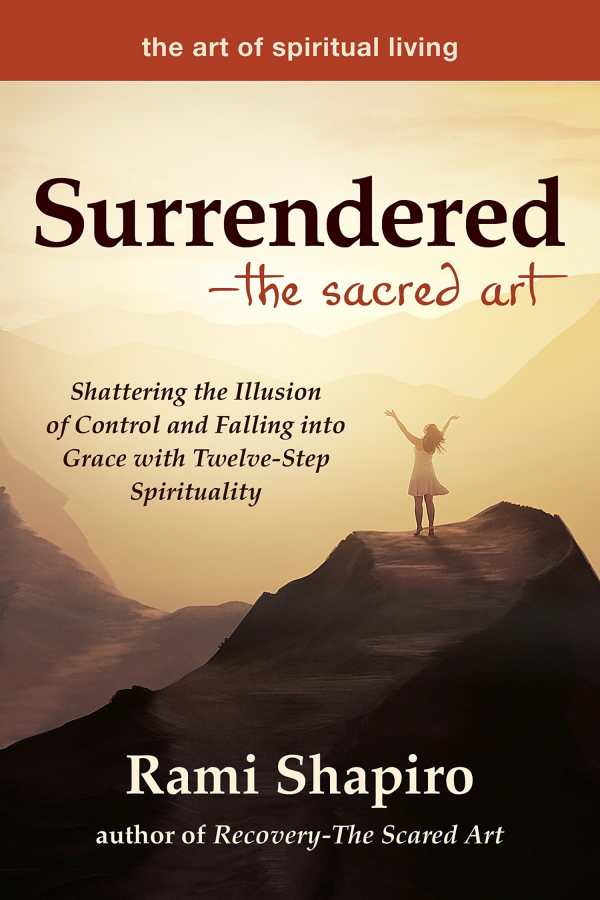Surrendered—The Sacred Art
Shattering the Illusion of Control and Falling into Grace with Twelve-Step Spirituality
Addiction is a disease. Let’s never categorize addictive behavior—abusing alcohol, drugs, food, gambling, pornography—as anything other than heartbreaking. Furthermore, with discipline and self-sufficiency so celebrated in the US, addicts suffer the additional indignity of personal shame and self-loathing. We all need to recognize that addicts can’t control their behavior, any more than the rest of us can control our thoughts.
In the words of Rabbi Rami Shapiro, the
ultimate addiction is addiction to control. … Because control is impossible, your addiction to control is an exercise in futility masked by addictive behaviors … It’s not that your life has become unmanageable, it’s that life itself is unmanageable—so unmanageable, in fact, that you cannot even willfully turn your life over to God or any other higher power.
Surrendered—The Sacred Art is Shapiro’s second book based on the Twelve Steps of Alcoholics Anonymous, which he calls a “spiritual practice on par with any other.” His reliance on the word “surrendered,” rather than “surrendering,” stems from his belief that you can’t willfully choose to move from addiction to recovery. Instead, by being surrendered to what is, you are freed from “the false binary of addiction/recovery … from the fantasy that you may choose between them.”
A food addict himself, Shapiro has long been a Twelve Step attendee and lecturer at retreats, seminars, and meetings. His approach to living a surrendered life clears the slate of falsehood and denial. Suffering is reality. “Addiction arises from your desperate need to play God, to maintain the illusion of control,” he writes. Wholly original, Surrendered—The Sacred Art draws from Shapiro’s deep familiarity with Judaism, Buddhism, Christianity, Islam, Taoism, and Hinduism.
Reviewed by
Matt Sutherland
Disclosure: This article is not an endorsement, but a review. The publisher of this book provided free copies of the book to have their book reviewed by a professional reviewer. No fee was paid by the publisher for this review. Foreword Reviews only recommends books that we love. Foreword Magazine, Inc. is disclosing this in accordance with the Federal Trade Commission’s 16 CFR, Part 255.

